Silence of the Lambs VS Hannibal: The problem with being perfect. [ENG/ESP]
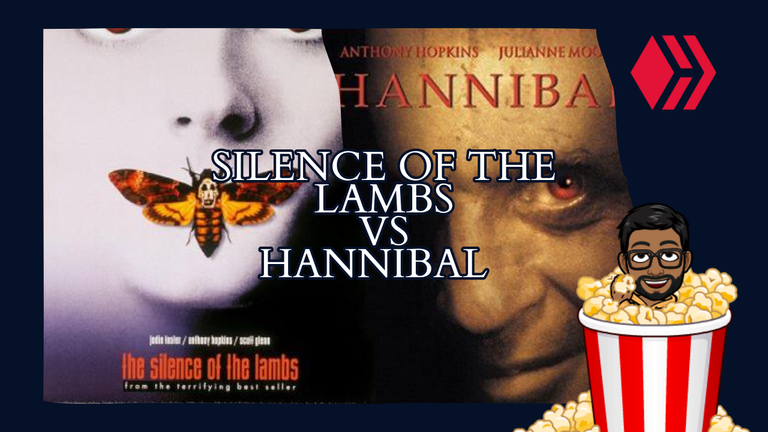
This cover was made using Canva and Bitmoji, the movie posters were taken from Filmaffinity.

ENGLISH
Although I saw it for the first time recently (relatively), I felt the need to revisit one of what quickly became my favorite film: The silence of the lambs.
The iconic adaptation of one of Thomas Harris's novels directed by Jonathan Demme and starring Anthony Hopkins and Jodie Foster (In which, by the way, would be two of the best performances I have seen in my life, very deserving of their respective Oscars), was an extremely firm film, constantly wandering between drama, horror, suspense and even comedy.
The irony of the whole thing is that Silence of the Lambs is a film of such quality that after we decide to delve into the rest of the cinematographic representations of Hannibal Lecter, the experience leaves us with a bitter taste, considering that next to a work so neat basically anything looks mediocre.
In my humble opinion, Hannibal (2001) is a perfect example of this, since unlike Red Dragon (Which, by the way, was released a year later as a prequel), the thematic and narrative connections with Silence of the Lambs make that comparisons are inevitable.
The question is: What is the reason for the radical difference in terms of quality? Considering that for many one is a perfect representation of the seventh art in its best state, and the other, on the other hand, is a barely entertaining thriller with few salvageable elements beyond the presence of Hopkins repeating the role of the cannibal psychiatrist.
Obviously, trying to understand this, I decided to put together a mini marathon, where just after rolling the credits of the first film, I would continue with Hannibal, trying to keep the essence of both fresh in my mind in order to clarify the differences.
And after just a couple of minutes the decline in quality is evident, something unfortunate considering that Ridley Scott was in charge of directing it.
"Hannibal" is a film that has enough elements to generate passion in its viewers, but is marred by a lack of subtlety and elegance that unconsciously makes us lose this connection that Silence of the Lambs could achieve effortlessly.
The action is sloppy, the dialogue circles around the obvious, and although all the performances are of a high level, very few times are they given space for the characters to shine correctly: Mason Verger, Lecter, Clarice... they are all solid performances and complex, who end up involved in a story that allows them to demonstrate their full potential.
Perhaps this is partly due to the same lack of subtlety of the work that is adapted on this occasion, a work that, unlike Silence of the Lambs, was forced to reformulate the interactions between Dr. Lecter and Clarice, one of the aspects most fascinating of the entire series. However, when the whole European subplot begins to fade, I admit that the film takes on a completely different atmosphere, one that is easier to get involved in... and ends with one of the most powerful climaxes I have seen anywhere. film.
Logically, at the end of the day advocating for one film or another is a matter of personal preferences, even so, I find the change in focus that occurred between one adaptation and another very interesting, especially considering how intimidating it must have been to pick up the story after Demme basically gave us one of the best films of all time.
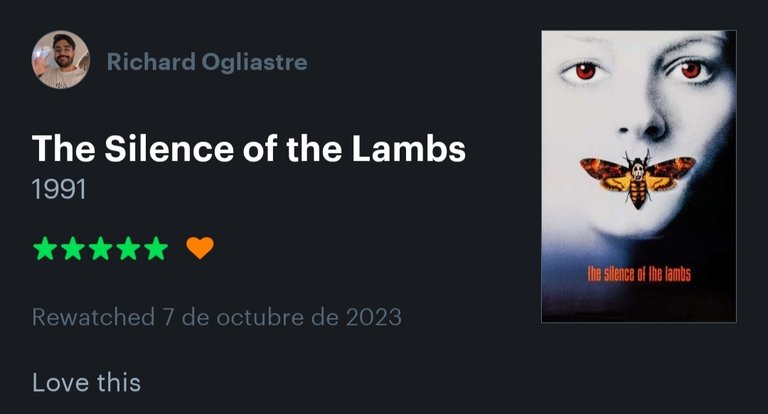
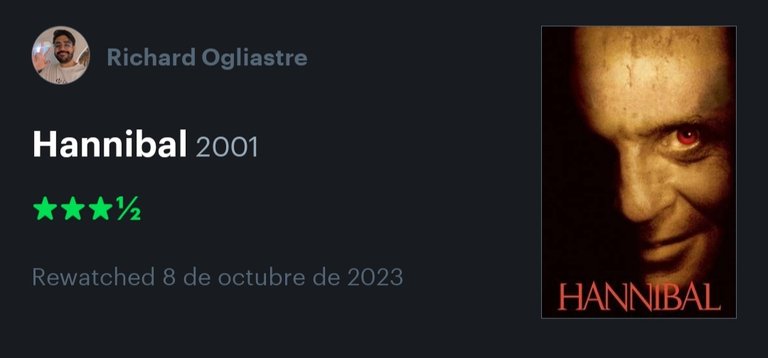
Scores taken from my Letterboxd Account.


Está portada fue creada usando Canva y Bitmoji, los pósters de la película fueron sacados de Filmaffinity.

ESPAÑOL
A pesar de que la Vi por primera vez hace poco tiempo (relativamente), sentí la necesidad de revisitar una de las que rápidamente se convirtió en mi película favorita: The silence of the lambs.
La icónica adaptación de una de las novelas de Thomas Harris digirida por Jonathan Demme y protagonizada por Anthony Hopkins y Jodie Foster (En los que por cierto vendrían siendo dos de los mejores performances que he visto en mi vida, muy merecedores de sus respectivos Oscares), era una película extremadamente firme, que deambulaba constantemente entre el drama, el terror, el suspenso y la comedia.
La ironía de todo el asunto es Silence of the Lambs es una película de tanta calidad, que luego de que decidimos adentrarnos en el resto de las representaciones cinematográfica de Hannibal Lecter la experiencia nos deja con un sabor amargo, ya que al lado de una obra tan prolija básicamente cualquier cosa se ve mediocre.
En mi humilde opinión, Hannibal (2001) es un ejemplo perfecto de esto, puesto que a diferencia de Red Dragon (Que por cierto, se estrenó un año después a modo de precuela), las conexiones temáticas y narrativas con Silence of the Lambs hacen que sean inevitables las comparaciones.
La pregunta es: ¿A qué se debe la radical diferencia en términos de calidad? Considerando que para muchos una es una representación perfecta del séptimo arte en su mejor estado, y la otra, en cambio, es un thriller apenas entretenido con pocos elementos salvables más allá de la presencia de Hopkins repitiendo el papel del psiquiatra cannibal.
Obviamente, tratando de comprender esto decidí armar un mini maratón, en dónde justo luego de rodar los créditos de la primera película, proseguiría con Hannibal, tratando de mantener la esencia de ambas fresca en mi mente con la finalidad de que se aclararan las diferencias.
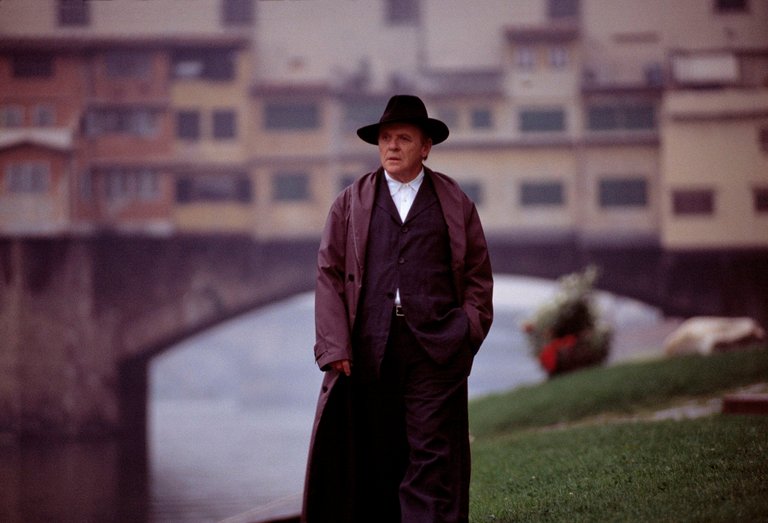
Source
Y es que luego de tan solo un par de minutos es evidente el decaimiento en términos de calidad, algo lamentable considerando que Ridley Scott fue el encargado de dirigirla.
"Hannibal" es una película que cuenta con elementos suficientes para generar pasión en sus espectadores, pero que se ve apañado por una falta de sutileza y elegancia que inconscientemente nos hace perder está conexión que Silence of the lambs podia conseguir sin esfuerzo.
La acción es desprolija, los diálogos dan vueltas sobre lo obvio, y aunque todas las actuaciones son de mucho nivel, muy pocas veces se le dan espacios para que los personajes brillen correctamente: Mason Verger, Lecter, Clarice... todos son representaciones solidas y complejas, que terminan implicados en una historia que les permite demostrar todo su potencial.
Quizá esto en parte se deba a la misma falta de sutileza de la obra que se adapta en esta ocasión, una obra que a diferencia de Silence of the lambs se veía forzada a reformular las interacciones este el doctor Lecter y Clarice, uno de los aspectos más fascinantes de toda la serie. No obstante, cuando toda la subtrama europea se empieza a desvanecer, admito que la película adquiere otra atmósfera totalmente diferente, una en la que es más fácil dejarse envolver... para finalizar así con uno de los climax más potentes que he visto en cualquier filme.
Lógicamente, al final del día abogar por una u otra película es una cuestión de preferencias personales, aún así, me parece interesantísimo el cambio de enfoque que hubo entre una adaptación y otra, especialmente considerando lo intimidante que tuvo que haber Sido retomar la historia luego de que Demme nos diera una de las mejores películas de todos los tiempos.


Estás puntuaciones fueron sacadas directamente desde mi cuenta de Letterboxd.

Twitter/Instagram/Letterbox: Alxxssss
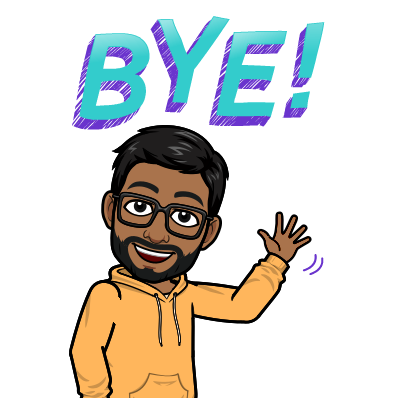
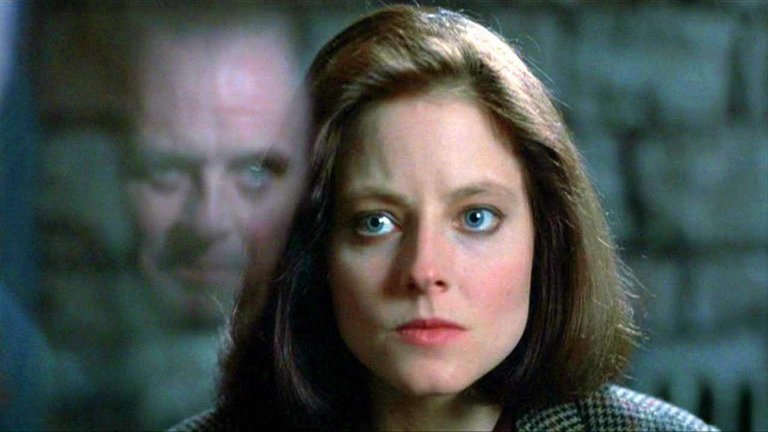
Silence of the Lamb is one of the best movies ever. When I first watched it I am very hooked to the acting of the Clarice Starling and Hannibal Lecter (both are exceptional in their acting).
Totally! It's great
El silencio de los corderos me gustó, la relación de estos dos sin duda es muy interesante. Los libros pues te vuelan un poco la cabeza. No continué a ver las otras aunque me hubiera gustado intentarlo. No sé si estás enterado que hay una serie llamada Hannibal que también tratan de este personaje, particularmente me encantó, aunque no tiene nada que ver con la película, y casi ni que con los libros. :) Buena publi, adiós.
Sii! Olvidé mencionar la serie pero a mí me encanta, es una pena que la cancelaran abruptamente y no pudo "adaptar" el silencio de los inocentes, aunque como dices, era bastante diferente a los libros y la película 😅
vaya vaya.. para mi esta pelúcula es un clásico, no sé cuantas veces la he visto pero guarda un lugar especial en mi corazón. La interpretación de Anthony Hopkins
es insuperable. Me encantó tu post!
Anthony Hopkins la eleva a otro nivel, es fascinante como el pánico que genera se mezcla con lo carismático.
Hey, me alegra volver a leerte. Tengo que admitir que Hannibal es un poco mi gusto culposo, cualquier cosa que implique sangre me asusta. Un saludo ❤️
Gracias por pasarte por aquí, Hannibal Lecter como personaje es genial, y aunque puede caer en lo violento me gusta que nunca es el enfoque principal de cualquiera de sus adaptaciones
Prefiero la primera parte de la trilogía. Es cierto que la trama como tal está mejor concebida en ella que en las otras dos películas. No leí las novelas (quizás parte de estas diferencias sean fallas de origen), pero suele suceder con las franquicias que la primera parte lleva la ventaja de la innovación, de la sorpresa. Después ya conocemos al personaje, ya sabemos lo que ha hecho y hay que incorporar elementos nuevos, pero siendo fieles al concepto original y eso es difícil de conseguir.
Interesante idea la de comparar ambas cintas. Gracias por compartir tu opinión con nosotros.
Si! Siento que la primera tuvo mucha ventaja en ese sentido, y bajo esa misma lógica las secuelas (y su precuela) sufrieron un poco, aún así, hay algo en la dirección y el ritmo de Silence of the Lambs que la hace sentir mucho más refinada, Hannibal en términos objetivos es efectiva, pero la siento mucho más desprolija y menos agradable estéticamente hablando.